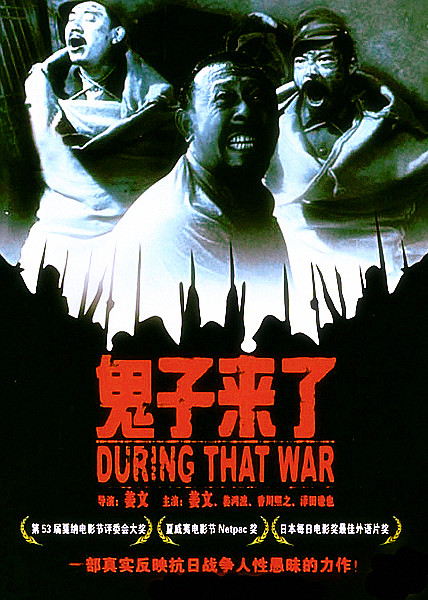鬼子来了 (2000) IMDb 豆瓣 TMDB 维基数据
鬼子来了
9.4 (1394 个评分)
导演:
姜文
演员:
姜文
/
香川照之
…
其它标题:
Devils on the Doorstep
/
鬼子來了
…
二战期间,中国河北唐山挂甲台村的农民马大三(姜文 饰)在日本人的统治下过着平静的生活。一个晚上,游击队绑架了日军陆军士兵花屋小三郎(香川照之 饰)和翻译董汉臣,把他们捆绑塞入麻袋放在马大三家里,并吩咐马好好看管,几天后的大年三十来带人。马大三和村民战战兢兢地看守两人,花屋小三郎和董汉臣数次发出求救信号,皆被村民化解。半年过去了,村民们担心事情暴露,却又不敢把花屋等放了。
马大三最终被董汉臣说动,把花屋和董送到了日军宪兵队驻地,以换取粮食。日军宪兵军官酒冢猪吉是花屋的同乡。他表面上对马等人客气,但背后指责花屋让皇军蒙耻并殴打了他。宪兵队整队去马的村子里和村民联欢送粮,酒到酣时却乍露杀机……
马大三最终被董汉臣说动,把花屋和董送到了日军宪兵队驻地,以换取粮食。日军宪兵军官酒冢猪吉是花屋的同乡。他表面上对马等人客气,但背后指责花屋让皇军蒙耻并殴打了他。宪兵队整队去马的村子里和村民联欢送粮,酒到酣时却乍露杀机……


